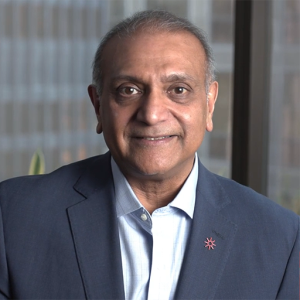27-28 May 2025 | Les Salles du Carrousel, Paris, France
Making the change to instant payments in all relevant channels is a large investment. What constitutes a good implementation plan? Which pain points remain globally and regionally?

Jude Pinto
Payments Canada

Antoine Cuypers
Intix

Daniel Stanton
Bank of America

Jonny Keir
NatWest Group
.jpg)
Kevin Flood
FIS

Sophie Giorgi
Crédit Agricole
Open Finance begins with secure and reliable data access for consumers to share their data with the financial apps and providers they choose to use. This panel will discuss how the move from today’s Open Banking will structure the journey towards an Open Finance ecosystem.

Vincent Brennan

Edwin Sanders
Rabobank

Manuel Thomet
Synpulse

Mounaim Cortet
Innopay

Simon Eacott
NatWest
The goals of the G20 Roadmap for Enhancing Cross-border Payments include increased transparency, speed, security and lower costs. However, challenges remain, in particular with regard to the operational and regulatory environment. How will the future of cross-border payments look like?
.png)
Kate Pohl
Euro Banking Association

Chris Jameson
Bank of America

Isabelle Poussigues
Société Générale

John Hutton
LexisNexis Risk Solutions

Rafael Linde
Cecabank
.jpg)
Tapan Agarwal
iGTB
With volumes of instant payments (and real-time payments in the US) constantly growing, which benefits do instant payments have – for PSPs, for companies, for retail consumers? Which drivers may promote further adoption of instant payments? What is the situation in emerging markets?

Christophe Vergne
Capgemini

Andrea Pennacchia
Nexi

Conor Colleary
Oracle Financial Services

Elena Gomez
Citi Services

Helena Forest
Mastercard

Martin Runow
Goldman Sachs Bank Europe

Dave Birch

Jean-François Mazure
Societe Generale

Simon McConnell
Citi Services
Is the market ready for the end of the coexistence of ISO and MT messages? What remains to be done in the next few months to realise ISO 20022’s full benefits?

Kjeld Herreman
Paylume

Christopher Gardner
Deutsche Bank

Domenico Scaffidi
Unifits

Justin Brearley-Smith
J.P. Morgan

Sylvain Dauge
Société Générale

Vitus Rotzer
Bottomline
What are the current complexities facing PSPs with regard to verification of payee? What else can reduce the fraud risk for consumers and businesses?

Lu Zurawski
Payment System Regulator

Jacques Vanhautere
SEPAmail.eu

Kannan Rasappan
Banfico

Nicolas Trimbour
BNP Paribas

Olivier Julou
Crédit Agricole
.png)
Sheri Brandon
Worldline Financial Services
Payment services providers have created innovative operating models for international remittances and low-value payments. How are these payment services changed by developments in real-time payments, Open Banking, and interlinkages between low-value infrastructures?

Leo Lipis
Lipis Advisors

Akshat Saharia
HSBC

Anastasia Serikova
Visa Direct

Emanuela Saccarola
Citi Services

Sanjeev Bhatti
BNY

Steve Naudé
Wise Platform
With instant and real-time payments live in the SEPA zone and the Americas now for years and with rapidly growing volumes, this session will explore how PSPs and their customers are already benefiting from access to real-time payment rails and corresponding solutions.

Elena Casal
The Clearing House

David Voss
Bank of America

Esther Galiana
BBVA

Dr. Hubertus von Poser
PPI

Simone Del Guerra
Nexi

Debi Bell Hosking
Finextra

Christian Luckow
Danske Bank

Frantz Teissèdre
Société Générale

Krister Billing
Euro Banking Association

Thomas Egner
Euro Banking Association

Wolfgang Ehrmann
Euro Banking Association

Isabelle Olivier
Visa Direct
Instant payments and virtual assets are reshaping the financial ecosystem – but with speed and digitalization comes exposure. Regulatory mandates like Verification of Payee (VOP) or the Travel Rule are helping to close the gaps in illicit financial flows, yet fraudsters continue to innovate faster than policy.
We will explore a holistic defense model, combining optimizations and AI/ML assistance that empowers financial institutions to prevent in real-time behavioral transaction anomalies.

Marie-Christine Diaz

Demis Estabridis
Gini GmbH

Miguel Palmer
Gini

Fabian Meyer
Tech ThinkTank within EPAM